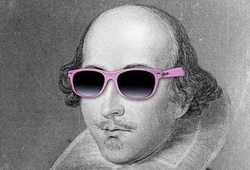
With respect I believe this to be inaccurate, but I'm happy to be corrected. Shakespeare's plays are all, famously, in five acts, but even if we leave that formality of structure aside, Shakespeare's plays to the best of my knowledge, all have multiple plotlines, not just one hero on a single journey, although each of those multiple storylines is usually, I think, a three act structure.
Shakespeare's plays utilise a very similar multiple storyline structure to the one used in films like 'Traffic' or 'Nashville' (a structure that I have I have termed 'tandem narrative' meaning 'stories running together') which is a structure involving a number of equally important stories on the same theme. In this, you have multiple storylines linked by: theme; often (but not always) geography; and characters that appear in several different storylines.
A lot of TV drama is structured like this, too, with multiple separate plotlines, hence the irritation of experienced TV writers when they're told linear one hero structure is the only way..
Shakespeare's comedies, like all Elizabethan/Jacobean comedies, famously have three plot lines, not just one, featuring three separate couples with stories on the same theme. Having three couples in a comedy was actually a convention of English comedy writing at the time, there being also a dance featuring all six together at the end of the play.
'Henry V' famously features what I've termed a bookend flashback structure (where a character in the present appears and talks about the past - or is reminded by it - and we flash back ('this wooden 0") . When we're in the past in Henry V, there are several storylines there. The tragedies have several plotlines on the same theme (eg King Lear has the Gloucester/Edgar/Edmund storyline on the same theme as that of Lear, namely 'ungrateful/grateful child' but note that Lear himself appears in it only at the start ).
Also, while it is currently fashionable to assert that all great drama is based on the Aristotelian notion of unities of time and place and single plotline, Shakespeare was famous for not fitting this model. There was a huge debate about this in the eighteenth century, in which Racine I believe and the French neoclassicists rejected Shakespeare as a bad playwright) However, Dr Johnson wrote a famous piece arguing that Shakespeare transcended Aristotle's formulae. So the 'Aristotelian structure is the only one' argument was put to bed two centuries ago. And, of course, French neoclassic drama famously atrophied and died out because it was so rule bound). But that's a whole other issue.
Happy to be corrected if Shakespeare did write any plays that featured solely one hero in one chronological three storyline.
For more information on my theories go first to Practical Writing Advice on my website then read my book The 21st Century Screenplay. And there are also videos of me, some free, one, a two hour lecture, for purThis nonlinear multiple storyline stuff isn't easy, but it's doable. (and that witty pic of Shakespeare is from the very clever Slatebreakers site)
 RSS Feed
RSS Feed


